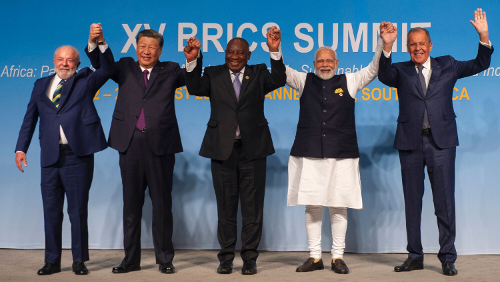Egypt, Ethiopia set to join BRICS in January as bloc expands

The BRICS group of emerging-market nations is set to double its membership, with Saudi Arabia, Iran, the United Arab Emirates, Ethiopia, and Egypt joining on January 1, according to South Africa's envoy to the bloc.
The current BRICS members—Brazil, Russia, India, China, and South Africa—extended invitations in August to six other nations. Argentina was the only country to decline the invitation. The term "BRIC" was originally coined by Goldman Sachs economist Jim O'Neill in 2001 to describe the rise of Brazil, Russia, India, and China.
The BRICS countries, with the inclusion of South Africa in 2010, account for more than 40% of the world's population and approximately 26% of the global economy. The expansion of the BRICS group reflects a broader representation of major economies from different regions, further solidifying its significance in the global economic landscape.
Key Takeaways
The expansion would unite some of the world’s largest oil producers with the developing world’s biggest consumers: With the addition of Saudi Arabia, the UAE, and Iran, this expanded group would include three of the world’s largest oil exporters and would constitute 42 percent of global oil supply. Ethiopia and Egypt alone have over 100m people each. And for the latter, its control of the Suez Canal—a route that shortens travel time between Asia and the Middle East to Europe is crucial to global trade—makes it even more relevant in international politics. Together, the new BRICS would represent almost half the world’s population and account for about half of global oil production. But beyond its ambitions of usurping a US-dominated world or being a 'voice of the Global South', the new bloc could become a crucial additional source of funding to address some of the continent’s pressing challenges.

Next Frontier
Stay up to date on major news and events in African markets. Delivered weekly.
Pulse54
UDeep-dives into what’s old and new in Africa’s investment landscape. Delivered twice monthly.
Events
Sign up to stay informed about our regular webinars, product launches, and exhibitions.




